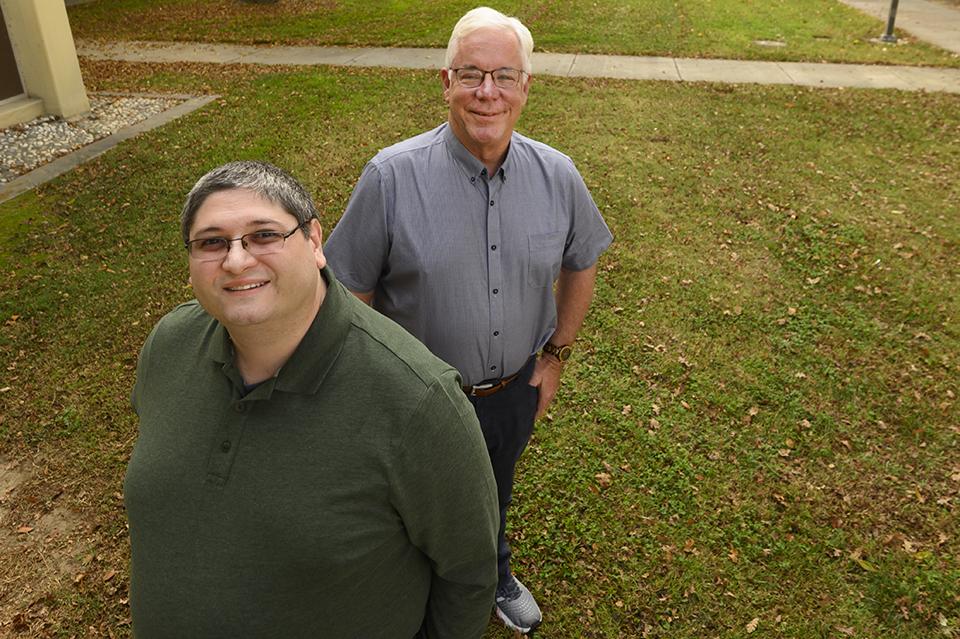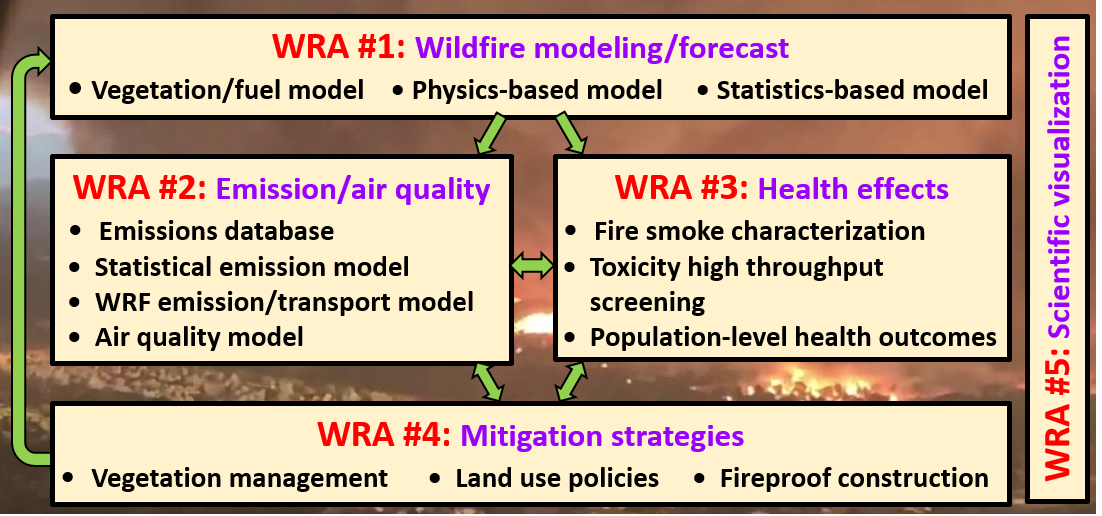
This project aims to develop a state-of-the-art scalable framework for assessment and mitigation of wildfire-induced air pollution, which will account for climate change effects. Wildfires are becoming an existential threat to the well-being of the U.S. population, with wildfire-induced air pollution as one of the most severe contributors to economic and life losses. This project will address critical research needs to assess and mitigate wildfire effects (and wildfire-induced air pollution in particular) on human health. It represents a truly inter- and multi-disciplinary effort by a group of accomplished researchers from UC Davis, UC Merced, UC Los Angeles, UC Irvine, UC Berkeley, Lawrence Livermore National Lab, Los Alamos National Lab, and EPRI. This project will significantly advance wildfire-related knowledge by: (1) bridging the gap between fine-scale physics-based and large-scale statistics-based wildfire models; (2) advancing the state of the art in wildfire emission estimation, coupled weather-fire simulation, and plume rise/transport modeling; (3) measuring physiochemical/optical/toxicological properties of fire emissions from heterogeneous fuels to evaluate population-level health effects; (4) assessing existing and innovative mitigation strategies for wildfires and wildfire-induced air pollution (including vegetation management, controlled burns, land use policies, and fireproof construction techniques and materials); and (5) developing the scientific visualization framework to support knowledge dissemination, community engagement, and policy development.

Media Announcements:
- 2020 UC Laboratory Fees Research Program Competition Announcement
- Scientists Receive $6 Million to Support Particle Accelerator, Wildfire Research
- Davis professors nab lead positions in laboratory research grants
- UC Davis scientists receive $6M to support particle accelerator, wildfire research
- Da Isernia alla California, l’ingegnere Barbato alla guida di un team di ricercatori